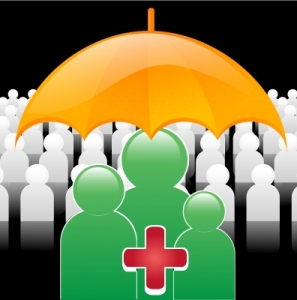Monday, August 31, 2015
Saturday, August 29, 2015
Friday, August 28, 2015
Computer aided diagnosis for mental health: two important strides
Researchers are using modern technologies to develop advanced tools to assist with the assessment of mental health problems. We hear a lot about “big data” and genetic sequencing, which can be expensive and complex, but there are also promising tools that are not so pricey or complex, even if they do employ components of big data and genetics.
Two examples caught my eye this week:
- A speech analysis program that predicted with 100 percent accuracy who would develop psychosis
- A blood test and app combo that predicts suicide risk with 90 percent accuracy
The speech analysis program was tested on 34 subjects, so we’ll have to see if the results hold up. But the idea makes sense. Well trained clinicians can already assess disjointed speech patterns and reach similar conclusions. But the computer seems to do an even better job, and more importantly, could ultimately make such techniques feasible for a much broader population who don’t have ready access to psychiatric services. And all while lowering the cost of assessment dramatically.
I’ve always thought it was quite primitive and even bizarre for clinicians to assess suicide risk by asking patients if they were thinking of killing themselves. So I’m pleased that a new tool combines a series of questions about energy level, feelings and accomplishments and uncertainty with a blood biomarker test. Again, this approach could ultimately be simpler and cheaper to administer, and more consistent than existing methods.
We won’t be replacing physicians any time soon, but these new approaches are emblematic of what we can expect as developers make better use of available data, analytics approaches, and distribution methods. I’m most excited about increased diagnostic accuracy, earlier availability of information, more widespread availabilty, and lower cost.
Image courtesy of Ambro at FreeDigitalPhotos.net
—
By healthcare business consultant David E. Williams, president of Health Business Group.
from Health Business Blog http://healthbusinessblog.com/2015/08/28/computer-aided-diagnosis-for-mental-health-two-important-strides/
via A Health Business Blog
Thursday, August 27, 2015
Massachusetts hospitals are making money — I’m quoted
The Massachusetts Center for Health Information and Analysis has released its 2014 profile of hospital financial performance. Profits are up moderately overall by various measurers, despite drops in inpatient stays, outpatient visits, and emergency department utilization. What’s going on?
As I told the Boston Globe (State hospitals report $1.2 billion in earnings):
“The health care system as a whole and the state’s biggest hospitals in particular have gotten the message that they need to control expenses.”
Hospitals saw this coming and have been making serious efforts to increase efficiency and control expenses in the face of healthcare reform. It’s encouraging to see that they are passing their first tests, as there will be more to follow.
As usual, many of the comments on the Globe’s website lament the big money made in medicine. But to put things in perspective, the whole Massachusetts hospital industry made less money in 2014 than some individual hedge fund managers.
—
By healthcare business consultant David E. Williams, president of Health Business Group.
from Health Business Blog http://healthbusinessblog.com/2015/08/27/massachusetts-hospitals-are-making-money-im-quoted/
via A Health Business Blog
Wednesday, August 26, 2015
Tuesday, August 25, 2015
corebodybuilding: Ohh yeaer
Ohh yeaer
from Discount Store Returns Blogger blog http://discountstorereturns.blogspot.com/2015/08/corebodybuilding-ohh-yeaer.html
via Discount Store Returns Blogger Blog
Sunday, August 23, 2015
Friday, August 21, 2015
Thursday, August 20, 2015
Wednesday, August 19, 2015
Wal-Mart provides evidence Obamacare is working
From a Wall Street Journal blog:
Wal-Mart Stores Inc.’s took a hit from the Affordable Care Act during the second-quarter.
The Bentonville, Ark.-based retailer said its pharmacy business had reduced margins, which hurt earnings at the U.S. business.
What does this mean? It means that Wal-Mart’s core customers, lower middle class families with median household income of around $45,000, are benefiting from the Affordable Care Act. Some have gained Medicaid coverage under the ACA’s expanded eligibility requirements, others have purchased policies on the public exchange, and some young adults have retained coverage under their parents’ policies. All of those people have prescription drug coverage and many are probably filling their prescriptions at Wal-Mart.
All else being equal, many of the newly covered should have extra disposable income. They could be spending some of that extra income at Wal-Mart, and maybe they are. But net/net consumers may be benefiting more from expanded insurance coverage than Wal-Mart. That’s not a bad thing in my book.
—
Image courtesy of atibodyphoto at FreeDigitalPhotos.net
from Health Business Blog http://healthbusinessblog.com/2015/08/19/wal-mart-provides-evidence-obamacare-is-working/
via A Health Business Blog
Health Wonk Review is up at Health System Ed
Peggy Salvatore at Health System Ed hosts the latest edition of the Health Wonk Review blog carnival. This week’s theme: The More Things Change, The More They Cost.
Enjoy.
from Health Business Blog http://healthbusinessblog.com/2015/08/19/health-wonk-review-is-up-at-health-system-ed-2/
via A Health Business Blog
Tuesday, August 18, 2015
Monday, August 17, 2015
Friday, August 14, 2015
Thursday, August 13, 2015
Wednesday, August 12, 2015
Tuesday, August 11, 2015
Saturday, August 8, 2015
Friday, August 7, 2015
Thursday, August 6, 2015
Ready for the eyeSelfie for diagnosing health problems?
I spoke last night to a friend who lamented that his teenage daughter seemed fixated on taking selfies of her eyeball with his phone. He found these when he went to review his stored photos. I thought it was a little odd but suggested that maybe she was looking for just the right shot to send off to an ophthalmology lab for diagnosis.
I may not be far from the truth. Today’s Boston Globe included MIT Camera Culture Group develops the ‘eyeSelfie’ to help monitor eye health. Sure enough, my suspicions were confirmed:
Researchers at the Camera Culture Group, headed by Ramesh Raskar at the MIT Media Lab, have designed the eyeSelfie, an inexpensive hand-held device for taking a photograph of the retina, the optic nerve, and the vasculature, which is located all the way at the back of one’s eye.
Digital snapshots of the interior of the eye can help physicians detect and treat vision-threatening diseases such as glaucoma, macular degeneration, and diabetic retinopathy early. New research indicates that the snapshots can also be used to identify risks factors for hypertension, heart disease, multiple sclerosis, and Alzheimer’s disease.
Taking this back into the realm of speculation, let’s imagine that Google decides to use its new image recognition initiative to automatically analyze eyeball photos, like those of my friend’s daughter. If the technology improves enough it could give Google vastly more insight into users’ health status. It goes way beyond my speculation from eight years ago (What if Google finds out you have cancer before you do?) about Google’s ability to guess a person’s illness from search logs, even if the user hasn’t been diagnosed yet.
I could take this further. Right now the MIT camera is a specialized unit and it still takes a bit of jiggering to get a clear shot that can be analyzed. But as camera technology improves perhaps we’ll get to the point where we can analyze even regular smartphone snapshots, zooming in on the eyeballs of everyone in the frame and assessing their health status.
That will take a while but we should be prepared for when we get there.
Image courtesy of Serge Bertasius Photography at FreeDigitalPhotos.net
—
By healthcare business consultant David E. Williams, president of Health Business Group.
from Health Business Blog http://healthbusinessblog.com/2015/08/06/ready-for-the-eyeselfie-for-diagnosing-health-problems/
via A Health Business Blog
Wednesday, August 5, 2015
Tuesday, August 4, 2015
You might be covered, even if your doctor sends you a bill
Kaiser Health News published an informative Q&A today, posing and answering three common questions about the practical aspects of health insurance. I’ve been working in healthcare for 20 years but I still like to read these pieces. Often the answers to the simple questions are not so simple, and sometimes I learn something new.
One of the questions caught my eye:
Q: I have insurance coverage through the health law’s marketplace. When I visited a cancer clinic for a routine blood check, I asked upfront three times (first over the phone and again when I was there) if all services would be in-network. The answer was “yes” each time. Afterward I received a bill from an out-of-network lab for $570. Is there anything I could have done to avoid this charge?
The column answered that theoretically the patient should be able to find out where the blood work is being sent and check if it’s in network, but realistically that’s a lot to ask.
From where I sit I think it’s unreasonable to expect the patient to have to do so. At a minimum I would complain to the clinic and would also considering leaving feedback on a ratings site to let others know.
But I also want to draw attention to the last part of the reply:
“In the meantime, check with your insurer… It’s not unusual for providers to bill patients for services that are ultimately covered by their plan.”
That’s a very important point, and fits with my own experience. Providers will typically bill the insurance company and if they get turned down or not fully paid they send the bill to the patient. This process can take a while, and that sometimes means the provider is sending a statement, not a bill, by the time everything is settled. When I see a balance for $176.45 that’s 60 days old –as I did recently on a provider statement– what does it really mean?
Here are a couple recent examples from my experience:
- A dentist sent a bill for my dependents, which had been rejected by the insurance due to lack of eligibility. I called the insurance company, which assured me coverage was in place. Eventually it was re-billed and went through. The same thing happened at the same office for another family member, and it was also corrected after I inquired. I never figured out who made the mistake or what exactly occurred between the office and the insurer.
- A dependent needed frequent eye exams due to a drug treatment he was undergoing. The first visit was paid but then other visits were denied. Some time passed before I received the bills and figured out insurance wasn’t paying. I called the ophthalmologist’s office and was told the visits had been coded as routine eye exams –which have to be a year apart to be covered. When I explained it should not have been coded that way they said it was too late to change it, the insurance company wouldn’t go back and fix it, and oh by the way if I paid over the phone they’d knock 50% off what I owed! Rather than accept that deal I called my insurance company and they took care of it within a week
A friend told me she is consistently billed for co-pays that she has paid at the time of the visit, but because it’s such a hassle to document her payments and to work to get them reversed, she just drops it. Although I pay all my co-pays at the time of service and have not had this trouble, I told her about other people I know who refuse to pay any co-pays at the time of service –for fear of this exact problem– and instead wait for the bills to come in the mail.
Bottom line: Don’t let the provider be the one to tell you you’re not covered. If you think you may be covered, call your health plan. Often it works out.
Image courtesy of digitalart at FreeDigitalPhotos.net
—
By healthcare business consultant David E. Williams, president of Health Business Group.
from Health Business Blog http://healthbusinessblog.com/2015/08/04/you-might-be-covered-even-if-your-doctor-sends-you-a-bill/
via A Health Business Blog



